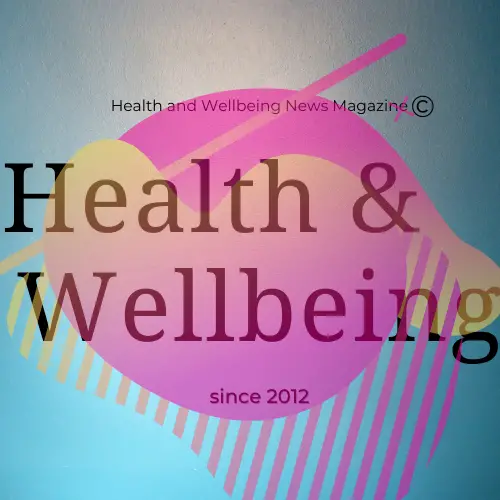Once you know why you drink, it can become much easier to stay in control of the amount you drink. Drinking alcohol in moderation can be an enjoyable experience as long as you follow some simple golden rules. If you do choose to drink, sip each drink slowly. Never drink on an empty stomach and always consume alcohol with food. Space your drinks out to no more than one alcoholic drink per hour, and have plenty of water in between drinks.
If you’re at home, out with friends, at a restaurant, pub or wine bar think beforehand how you are going to make sure you don’t drink too much. You might alternate alcoholic and non-alcoholic drinks, allow yourself a set number of drinks, or volunteer to be the designated driver and don’t have any alcohol at all!
Simple ways to reducing alcohol consumption
- Decide on your ultimate goal. – Do you want to give up alcohol altogether? Or do you want to cut down to a set daily amount? Maybe you want to avoid binge drinking at the weekend.
- Keep a record – If your drinking is gradually increasing, but you’re not sure what’s passing your lips in an average week WRITE IT DOWN. Keep a small notebook in your pocket or bag and write in it every drink you have. It might be the wake-up-call you need to reduce your drinking, or you may discover you’re not drinking in an unhealthy way at all.
- Try something different – if you usually have wine with a meal, try a non-alcoholic wine, or carbonated drink. There are lots of different ones available and could give you a good excuse to try something new.
- Drink plenty of water – many of us have a long alcoholic drink because we’re thirsty, but alcohol is actually de-hydrating which is why you often want more. Alternate alcoholic drinks with a glass of water.
- Do something different – if you are in the habit of having a drink while you watch TV or in your lunch break, break the pattern and do something completely different. Switch off the TV and listen to music, go for a walk at lunch time. Watch out for the habit drinking where it’s too easy to have several drinks without even noticing them. If you usually go to the pub with a friend, suggest the cinema instead.
- Find new ways to relax – if you associate drinking with relaxing then try something different. Have a candlelit bath, do some yoga, have a massage etc etc.
- Give yourself an incentive to cut down – work out how much you spend on alcohol, then figure out how much you could afford to spend on a special treat for yourself if you cut down. Make the treat something that you wouldn’t ordinarily have or think that you couldn’t normally afford. You might be surprised at how quickly you find you can have it.
- Always have food before you drink – eating will help slow down the rate at which the alcohol hits your bloodstream and so minimise the potential damage to your system. Never drink on an empty stomach.
- Drink slowly – if you are going to have a drink, make sure you enjoy it. Sip your drinks so that you can really appreciate the taste of what you are drinking.
- Do stress busting activity – if you drink to relax or unwind, try exercise instead, it releases endorphins which help you to feel good. Try cycling to and from work, or going for a brisk walk during your lunch hour, or join a Yoga or Pilates class.
- Stay in control of your glass – If you are in a restaurant, don’t let the wine waiter – or your companion – keep topping up your glass. Politely explain you would rather pour your own, that way you can keep tabs on what you’re drinking.
- Avoid group pressure – When you go out in a group, try and avoid buying drinks in rounds. When you do this, you’re forced to drink at the rate of the fastest drinker. If you do end up buying rounds, buy yourself a non-alcoholic drink every time it’s your round.
- Schedule in healthy activities at weekends and before work. – If you know you are committed to an early exercise class or cycling to work, you are less likely to over-indulge the night before. Exercising in the morning can also make you feel so good that you don’t feel the need for a drink anyway.
- Have alcohol free days – give your system a rest! Get out of the habit of drinking because you are stressed or have nothing else to do. Look for other ways to relax: activities like swimming, yoga or going to the cinema, which will make you feel better and don’t involve alcohol.
Do you need help to stop drinking?
With such a raft of problems associated with excessive drinking the need to manage your consumption is vitally important. A person who drinks too much may feel it is impossible for them to reduce their alcohol consumption.
If a drinking habit is very heavy, it is often hard work to reduce it – simply because it can be difficult to change habits.
You may not even be sure whether you want to cut down. If you are concerned about any aspect of your own drinking, or your mental health, your GP will be able to help. You can also call Drinkline on 0800 917 8282, a free confidential helpline (open 24hrs a day, 7 days a week) who can point you towards your local alcohol service. You can also call Drinkline if you’re worried about somebody else’s drinking.
If you think you are already experiencing some of the possible harmful effects of drinking, or that you have become dependent on alcohol, your doctor is almost certainly the best place to go. There may also be an Alcohol and Drugs Advisory Service in your area who will be able to offer you help.
For a very heavy drinker, stopping alcohol abruptly can be dangerous. In addition to the anxiety that abrupt withdrawal can cause, a small proportion of people develop a potentially serious condition called delirium tremens (DTs). This can cause confusion and even convulsions.
Patients at risk of DTs are best managed by planned withdrawal from alcohol in hospital, along with supportive counselling and drug therapy to counteract the physical effects.
Antabuse (disulfiram) is a prescription-only medicine that’s designed to deter people from drinking. Antabuse does not remove the craving for alcohol, but it will help a drinker avoid being tempted in a weak moment.
This is because if a person drinks while they are taking Antabuse, it will cause serious and unpleasant symptoms such as:
- severe headache
- blushing
- a feeling of pressure in the chest
- breathlessness
- palpitations
- nausea
- in the worst cases, shock and collapse.
In the event of shock, treatment will be required from a doctor or in a hospital emergency department.
For some people, Antabuse is a good idea and a safety measure. Ex-drinkers who have used Antabuse say it is a relief to know they can’t drink. It allows alcoholics to focus on things other than not drinking too much.
However, Antabuse is a controversial medicine. It does not help everyone who takes it, nor is it the only way to give up alcohol. The problem with Antabuse is it doesn’t take away the cravings for drinking. And that’s what anyone suffering with alcoholism who really wants to quit, needs.
Campral EC (acamprosate) is another drug that may be helpful to deter drinking. It works in the brain where it is thought to act by reducing the desire to drink alcohol. It doesn’t produce the same effect that Antabuse does if alcohol is consumed.
Here are 8 important reasons to stop drinking alcohol.
Anyone with a drinking problem may recognize these agonizing problems as part of their daily life:
1. To stop alcohol from causing you to question what kind of person you are, to stop alcohol from making you feel like you aren’t good enough, to stop alcohol from affecting how you feel about yourself
2. You can save money.
3. You don’t have blackouts and you don’t have to wake up with a hangover anymore.
4. You no longer have regrets or shame at what you did last night.
5. Feel good emotionally and feel healthier. You are not poisoning your own body.
6. You don’t have to worry about what you did or said the night before.
7. You can start achieving the important goals you need to accomplish in your life.
8. You can stop being sick all of the time.
Alcohol addiction affects so many things in your life. It whispers in your ear that you are no good, that you are a failure, that you are useless. It keeps you down and it keeps you sick. It gives you a grim outlook on your life.
If this sounds familiar, then it’s time NOW to get some help and take control back if you don’t want to experience these problems in the future.
“People who drink to drown their sorrow should be told that sorrow knows how to swim.”
– Ann Landers
“It’s easy to give up drinking; I’ve done it a thousand times.”
– W.C. Fields
Navigating Towards Sobriety: The 12-Step AA Program in the USA
Addiction is a formidable adversary, affecting millions of lives across the United States. For those seeking a path to recovery, the 12-Step Alcoholics Anonymous (AA) program has provided a beacon of hope and support since its inception in the 1930s. In this blog post, we’ll explore the profound impact of the AA program and its transformative journey towards sobriety.
Step 1: Admitting Powerlessness
The first step in the AA program is acknowledging powerlessness over alcohol. This fundamental realization opens the door to self-awareness and acceptance, a pivotal moment on the path to recovery.
Step 2: Embracing Higher Power
Recognizing a higher power, whether it’s spiritual, religious, or a personal concept, is central to the second step. It offers strength and guidance for those in search of lasting change.
Step 3: Surrendering Control
Surrendering control to the higher power allows individuals to release the burden of addiction. It’s an act of faith, signaling a commitment to a new way of life.
Step 4: Moral Inventory
The fourth step involves a fearless and honest self-assessment. It’s a crucial process of introspection, examining one’s past actions, and taking responsibility for them.
Step 5: Admitting Wrongs
Sharing the inventory with a trusted person or a higher power helps individuals face their shortcomings. This step fosters accountability and strengthens the resolve to change.
Step 6: Willingness to Change
Step six marks a shift towards self-improvement. It’s about being ready and willing to let go of character defects and negative patterns, making room for personal growth.
Step 7: Humbly Seeking Change
The seventh step builds on the willingness to change, seeking the higher power’s assistance in removing shortcomings. It’s an act of humility, demonstrating a commitment to transformation.
Step 8: Making Amends
Making amends, step eight, mends relationships strained by addiction. It’s a courageous endeavor, demonstrating a sincere desire for healing and reconciliation.
Step 9: Direct Amends
Taking direct amends, step nine, requires sensitivity and thoughtfulness. It’s a process of making reparations without causing further harm to others.
Step 10: Daily Inventory
Step ten encourages a continuous process of self-reflection and accountability. It helps individuals stay on course, recognizing and rectifying their behavior promptly.
Step 11: Spiritual Connection
Cultivating a deeper spiritual connection is the essence of the eleventh step. Through prayer, meditation, or other practices, individuals find solace, strength, and guidance.
Step 12: Carrying the Message
The final step emphasizes giving back and helping others on their own journey to recovery. It’s a powerful reminder of the collective strength within the AA community.






Please tell me more about your excellent articles
Thank you for writing this article. I appreciate the subject too.
May I have information on the topic of your article?